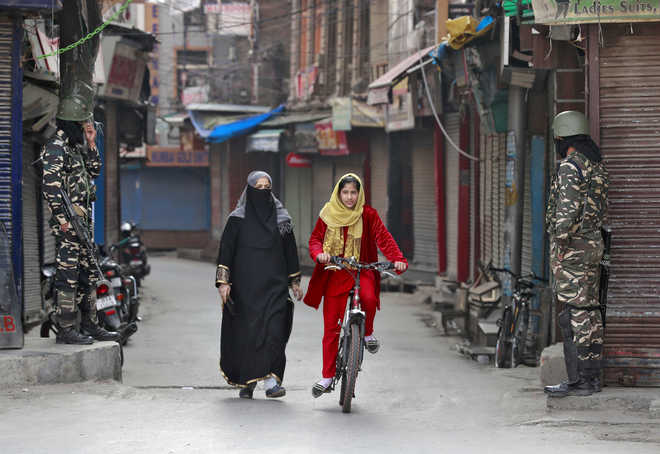As Jammu and Kashmir gets formally split into two UTs today, Tuesday’s gruesome killing in Kulgam of labourers from West Bengal is a grim reminder of the task at hand for the security grid — already out in full force to guard against incendiary protests and attacks after the state lost its special status. The terror handlers’ strategic switch to targeted killing of non-local truckers and labourers, as part of a campaign to deter them from working in Kashmir even if most of the victims have been Muslims, presents a new challenge. New Delhi has stated that UT status would ensure better integration with the Union, but it is now staring at an ever-widening chasm.
The bloodbath took place on the day of the controversy-ridden first visit by any international delegation after August 5. The government has chosen to side-step questions on the purpose and motive behind allowing European Union parliamentarians, many among them from extreme right or right-wing parties, to visit the Valley when Opposition MPs have been denied access all along. A few weeks ago, a US senator was refused permission. Shiv Sena raked up the issue of ‘internationalising’ the issue, reminding ally BJP how it continuously targets Pt Nehru for taking the Kashmir issue to the UN.
The credibility of the EU delegation got dented when a member claimed he was dropped from the trip because he asked for unfettered access for a fair assessment, and was ‘not prepared for a PR stunt and pretend all is well’. So, all is well, then? The EU parliamentarians have said nothing to the contrary. Terming Article 370 an internal issue of India, they vowed to stand by the country in its fight against terrorism. While one claimed the international media coverage seemed biased, another said the visit was an ‘eye-opener’. There was one positive note though for the Opposition to lap up: ‘You should also let in politicians from India. There is some kind of disbalance, the government should somehow address it.’

